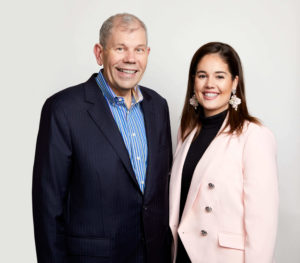Succession Planning For Surgeons – Resources For Plastic Surgeon Practice Transitions and Exit Strategies
Mature Plastic Surgeons ask their colleagues and advisors about practice transition, succession planning and retirement plans. Whether you are 60, 65 or 70+, planning for the future of your practice is essential. START EARLY!
- Want to plan your practice exit strategy?
- Want to sell your plastic surgery practice in future?
- Want to find a plastic surgeon for succession?
Here are some resources that can help.
SUCCESSION OPTIONS & EXIT STRATEGIES FOR PLASTIC SURGEONS
Most Plastic Surgeons take one of these 6 options for practice transition
- Find a Younger Plastic Surgeon successor to take over the practice (can take 3 to 5 years) – See Steve Look at Paradigm Search Group in USA.
- Join a Bigger Group of Surgeons near your location (that will provide Practice Management Services for you)
- Pivot from a surgical practice into a non-surgical medspa practice – Offer injectables & skin clinic services and act as an advisor for a decade
- Sell your practice to a Corporate Buyer or larger Rollup Group -usually funded by Venture Capital or Private Equity – usually prefer a surgeon group or busy medspa to a solo older surgeon.
- Sell your practice to an Academic Institution or Private Hospital wishing to expand into Cosmetic Plastic Surgery or Aesthetics – the new “Priv-ademics” model. see ARSA model below.
- Close Your Practice Down and Sell Your Practice Assets – database, website, domain or phone number – to another surgeon for a low price (refer your past patients to a colleague).
You could also sell your ASC / Day Surgery Centre to a Private Hospital Group if you own one.
GROUPS INTERESTED IN BUYING AESTHETIC PRACTICES IN AUSTRALIA
These groups are mostly consolidating Injectables / laser Clinics, Medspas, Dermatology or Cosmetic Physician Practices rather than an older solo plastic surgeon practice.
- Aura Medical Group – Deb Farnworth Wood etc
- Silk Laser Clinics – ASX-listed company
- Artisan Aesthetics Group Pty Ltd
- Aesthetic Partners / Me Aesthetic – contact Costa Koulouris at Me Clinic Melbourne
Nikki Katz is a clinic broker that may be able to help you sell your clinic or practice
GROUPS INTERESTED IN BUYING AESTHETIC PRACTICES in USA
-
- There are many corporate groups and platforms (Most backed by Private Equity) interested in buying clinics.
- See the BIG LIST of potential corporate buyers for your plastic surgery practice
- There are about 20 Dermatology Management Companies (DMCs) that are also interested in buying Plastic Surgery practices
USEFUL CONSULTING RESOURCES FOR TRANSITIONING OR SELLING YOUR PLASTICS PRACTICE
- USA Exit Planning Consultant – Inspiring Effective Leadership – Enrique Fernandez – ASPS USA Member Plastic Surgeon – retired at 61 after colon cancer diagnosis (Speaks at conferences) https://www.enriquefernandezmd.com/
- Tom Ferkovic USA Medic Management – https://www.medicmgmt.com
- Michael Byrd USA – https://www.ByrdAdatto.com
PRACTICE VALUATION METHODS FOR PLASTIC SURGEON PRACTICES
How Much is a Plastic Surgery Practice Worth?
The most valuable parts of your aesthetic practice are probably
- your office building / consulting suite,
- your operating room (OR) or Surgery Centre (ASC)
- the Medispa part of the practice with a proven track record of consistent sustainable earnings.
These assets can be valuable based on your location and other similar industry sales.
To create value from your actual plastic surgery practice (patient database, equipment, I.P., fitout, goodwill) you will most likely need to spend 3 to 5 years finding and nurturing your successor surgeon buyer or working for your corporate buyer on a contract.
SELLING TO A YOUNGER SURGEON SUCCESSOR
A good solo plastic surgeon practice might be able to sell to a surgeon successor for about $250k to $1 million – paid over time.
The surgeon purchaser typically starts as an associate on a salary for 2 to 3 years then
SELLING TO A CORPORATE GROUP
A corporate buyer or platform wants to buy a sustainable future income stream – based on the surgeons continuing to work in the practice.
- For a solo surgeon this might be your adjusted EBITDA times a set multiple – say 3x to 5x EBITDA – depending on your age, keyman risk, systems, I.P. location and surgeon contracted salary arrangement etc
- For a group practice the EBITDA multiple may be higher – say 4x to 7x EBITDA – again depending on the number of surgeons, risk, systems, unique I.P., location, past income, Brand reputation, and contracted surgeon arrangements.
Your practice EBITDA (Earnings before Interest, Tax, Depreciation and Amortisation) will be affected by
- The surgeon contract that you sign and it’s surgeon fee arrangement, inclusions/restrictions. For example, in the USA, you might agree to be paid 25% to 40% of your surgeon fees. In Australia, maybe 50 to 60% of your surgeon fees.
- Taking out any of your personal expenses – travel, motor vehicle, phone, laptop, insurances etc etc
- Staff Liabilities – accrued holiday and leave pay for example
A corporate buyer will most likely pay much more for your practice than a surgeon successor (maybe 2 or 3 times as much) but will typically
- require a LOT of detailed Due Diligence to ensure the accuracy of your financials and QOE report and identify any potential risks.
- take over full control of the practice and make many changes (some that you will disagree with)
- aim to reduce expenses and run the practice much more efficiently
- reduce corporate risks by implementing stricter financial controls, software and operational policies
Be aware that the corporate representative who makes promises and negotiates the sale of your practice is most likely NOT the one you will end up working with on a daily basis. Make sure that everything you want is written in the contract. This may include non-compete clauses, use of photos and reviews, limits on travel for conferences and specifically what happens if the platform fails or sells to another group.
You will most likely be offered a combination of cash and shares in the purchasing entity. For older surgeons, your peers will probably advise you to take a bigger cash component (less shares in the entity).
If you want some more ideas about Practice Succession or Lifestyle Retirement options – please contact Dave Staughton for a chat about your options
REFERENCES ABOUT RETIRING & PLASTIC PRACTICE SUCCESSION PLANNING
- Reflections on a Career in Plastic Surgery: A National Survey of Retired Surgeons
- A Plastic Surgeon retires – pdf article
- Retired plastic surgeons as Educators during covid 19
- How to properly plan your Succession 0 Article from Medaesthetics Magazine Article
- Retired Surgeons’ Reflections on Their Careers
- Plastic surgeons over 50: practice patterns, satisfaction, and retirement plans – PRS2008 121(4)
- Retired Not Dead: Thoughts Plastic Surgical and Otherwise – PRS 209 Nov – Robert Goldwyn
- Developing an effective succession plan for your practice: why should I care? 2010 FPS Article by Catherine Maley
REFERENCES ON AN EXIT STRATEGY AND SELLING YOUR PRACTICE
- ASPS USA Article – Retiring from practice requires an exit strategy
- Are you needing to sell your plastic surgery practice? – plan 3 to 5 years ahead!
- Don’t retire your practice; ‘transition’ it
- Retirement Planning For Plastic/Cosmetic Surgeons
USEFUL BOOKS ON SUCCESSION PLANNING & PRACTICE TRANSITION
- BOOK – Retired Not Dead : thoughts Plastic Surgical and Otherwise – by Robert M Goldwyn 2008 296 pages
- BOOK – Succession – Are you Ready? by Marshall Goldsmith
- BOOK – Halftime – moving from Success to Significance by Bob Buford
- BOOK – Beyond Half Time – Practical Wisdom for your Second Half by Bob Buford
- BOOK – Finishing Well – The adventures of Life beyond half time by Bob Buford
- BOOK – How Much is Enough – Making Financial Decisions that create Wealth and Wellbeing – by Arun Abey and Andrew Ford


